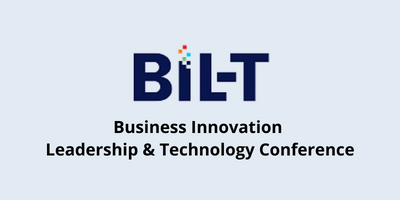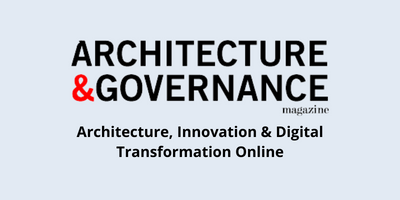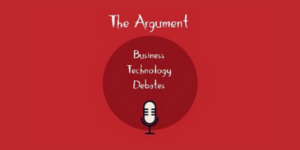Multi-Channel Commerce and Wallet targets multiple channels, social networks and devices to access information through events. Events occur in real time and get generated by various applications. Events have to be captured in a database or in memory to be processed and information has to be sent across the application layer to different devices and channels (web, desktop, kiosk and mobile). Every event has context associated with it. Context will be typically what, why, who, where, when related attributes.
In the retail and telecom domain, Merchant offers can be stored in memory. Based on the location, offers can be assessed and sent to the customer. The customer offer when redeemed will use the wallet which acts as the mediator for payments. Product catalog can be accessed from memory for speed and performance user experience to the customer. For an offer, what products the customer is interested in, the personality of the individual, where the person is located, when the product needs to be delivered and the need for the product. The multi-channel contextual engine will process the event and the information associated. The contextual engine will have the messaging, event processing, web services and analytic capabilities. The solution patterns related to event processing are sequential, aggregate, on-off, missing, window, correlations and nested events.
Multi-Channel Commerce and Wallet solution is part of internet of things (IOT) applications in the industrial world. The devices and sensors send events which are collected, stored, analyzed and processed by the events processing engine. Google glass is latest in the devices space. The events which can be handled are offers through glass, augmented reality, locational intelligence, stock alerts, calendar events and event alerts. Apple iWatch and Nice Fuel band are other devices used for patient guidance system and remote data gathering related to fitness and cardiac health.
Mobile channel can handle events related to mobile commerce, mobile office and compliance. In the mobile commerce area, money transfer, ticketing, loyalty, content purchase, banking, brokerage, auctions, payments, billing and contactless payments are target candidates. In the mobile office domain, workforce management, Salesforce automation, fleet management and consumer apps are the key features for event based processing. In the compliance area, health related standards (HIPPA), financial related standards (SOX) etc., are handled in the event processing solution. The value proposition for this solution will be the contextual ad revenue, customer loyalty, customer churn through social media, real time decision making and revenue through content purchases.
Merchant can manage the offers and the orders from the multi-channel commerce solution. The wallet settles the transactions acting as a mediator between the consumer, financial services enterprise and the merchant. The merchant from a typical enterprise needs to handle the product sales, order management, shipping, logistics, customer management and inventory management. Typical Enterprise Platform has Enterprise service bus, SOA and BPM related products which can help model this solution. Complex events processing can be enabled by using in-memory database and for event analytics.
In a typical enterprise, departments exchange messages or artifacts and events associated with these messages are monitored. Enterprise events across the departments and applications will be generated and stored in the datastore. Good example is a sales order which goes from the sales to the accounting and the associated events of create/update/delete for the sales order. Sales order related events will be monitored and audited by the sales and accounting departments till the order life-cycle.
Total cost of ownership for the enterprise will be less with the investment in enterprise specific platform as it involves integrating multiple applications and tracking/monitoring the events generated from the applications. Return on investment with Earl SOA implementation methodology is higher compared to the packaged software implementations which involve changing the enterprise business process to the software model. Enterprise benefits using enterprise specific platforms in terms of revenue are shortened time to market, increase in offer uptake ratio, cross-sell/upsell opportunities and contextual customer managements.
The context associated with enterprise domain entities like product, individual, employee, customer, vendor, partner, item etc., is processed and stored in the data store. The events related to Customer relationship management, product life-cycle management, enterprise resource planning etc., are processed and information is sent as response as requested.
Ecommerce Platform
Typical ecommerce platform has template engine, taxation, subscriptions, order management, point of sale, product catalog, product rating, Returns management, Social bookmarking, Search, Coupon management, Rewards and Loyalty management, Offers management, inventory management, shopping cart, vendor management, integration with payment gateways, customer management, order fulfillment, warehouse management, content management, accounting, user management, security and other features.
eWallet
eWallet has a bank account or credit card tied up with the account set up on a telecom provider or a bank for a consumer. Merchants manage through their relationship with bank for products and offer management. eWallet is typically on client side but in recent days, server side wallets or thin wallets are becoming popular. Organizations like bank or telecom operators or ecommerce provider creates for a consumer. Wallet data consists of shipping, billing addresses and payment methods (credit/debit, pin numbers, etc.). In recent times, NFC digital wallets, biometric wallets are catching up in the world.
Wallet is typically free for consumers and merchants get charged for wallet transactions settlement. Wallets are popular because consumers need not fill the payment method based forms and they are secure by design. Electronic commerce modelling Language (ECML) is a standard for interaction between online retailers and consumers for checking out process.
Social Engine
The social engine is a part of the solution. Social store, social shopping and social genome are the engine capabilities. Social genome features are related to people/product/topic/place/event associations. People are associated with friends and followers. Product will be correlated to the other products. Product availability is associated with the place. Place and the events happening at that place are associated.
Bhagvan Kommadi is the Vice President of Engineering and Technology at SyberPlace. Bhagvan is an experienced Professional Leader who has around 17 years experience spanning in the creation of center of excellence and solution practices for TIBCO, Kony, Virtusa, Interglobe Technologies in the areas of enterprise mobility, enterprise content management, enterprise security, BI, SOA, CEP, MDM and BPM. He is member of IFX forum and participant in Java Community Process. He started WWISA chapters in Hyderabad.He has done Stanford Enterprenurial Workshop Masters in Industrial Systems Engineering at Georgia Institute of Technology (1997) and Bachelors in Aerospace Engineering from Indian Institute of Technology, Madras (1993).








